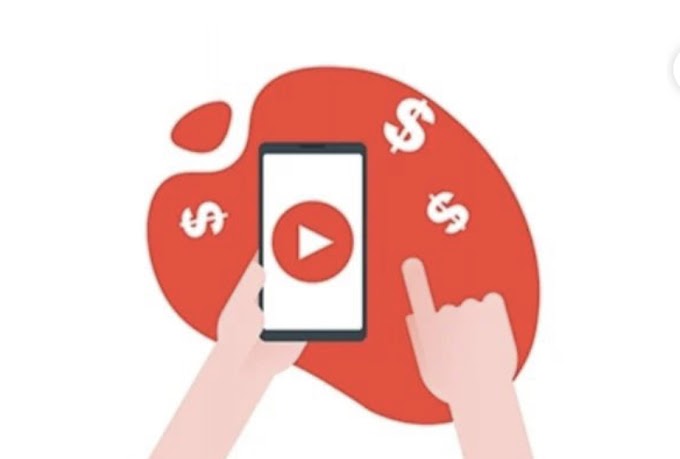The Reasons Women Who Marry Late Choose to Freeze Their Eggs
how egg freezing allows women to preserve fertility, manage career and life goals, and reduce anxiety about childbearing as they age.
In recent years, an increasing number of women have chosen to freeze their eggs, especially those who marry later in life. This trend, while influenced by various societal, personal, and biological factors, highlights the evolving approach to family planning and reproductive health. Freezing eggs, medically known as oocyte cryopreservation, is a process that involves extracting a woman’s eggs, freezing them, and storing them for future use. For many women, this option provides greater reproductive flexibility, especially for those who delay marriage and childbearing for various reasons.
This article explores the reasons why women who marry late often choose to freeze their eggs, covering the biological, social, and cultural factors that contribute to this decision.
1. Biological Factors: The Impact of Age on Fertility
One of the primary reasons women choose to freeze their eggs is the natural decline in fertility with age. Women are born with a finite number of eggs, and as they age, both the quantity and quality of these eggs decline. This is particularly evident after the age of 35, when fertility begins to decrease significantly.
The process of egg freezing allows women to preserve their eggs at a younger age, when their quality is at its peak. By doing so, they can increase their chances of having a child later in life, even if they marry later or face fertility challenges. The science behind egg freezing is grounded in the preservation of oocytes at the most optimal stage of development, which can help mitigate some of the risks associated with advanced maternal age, such as chromosomal abnormalities and infertility.
As women delay marriage, many are well aware of the biological clock ticking away, which can make the decision to freeze eggs seem like a sensible way to buy more time. Egg freezing provides an opportunity to safeguard fertility while postponing motherhood to a time when a woman may feel more emotionally, financially, and socially prepared for the responsibility of raising children.
2. Delayed Marriages and Changing Social Norms
Over the past few decades, societal norms surrounding marriage and family have evolved significantly. Today, many women are choosing to marry later in life, often for a variety of reasons including career development, education, personal growth, and financial stability. According to a 2019 report from the U.S. Census Bureau, the average age of first marriage has risen steadily over the past 50 years, with women marrying at an average age of 28.
This shift is largely due to changing priorities. Women are increasingly focused on career advancement and establishing financial independence before settling down and starting a family. Others may wish to travel, explore personal interests, or simply wait for the right partner. In this context, freezing eggs becomes a strategic way to ensure that delayed marriage does not result in a diminished ability to have children in the future.
The social stigma once associated with unmarried women or women who marry later has also diminished. Today, more and more women are embracing the concept of being independent and choosing when they want to settle down. This empowerment has made egg freezing a more accessible and appealing option for women who prioritize career and personal fulfillment before entering marriage.
3. Fertility Challenges and Unknowns
Despite advances in reproductive technology, many women find that they face fertility challenges as they get older. Even those who marry later may be uncertain about the timing of when they will be ready to have children, especially if they face challenges such as finding the right partner or feeling financially stable enough to start a family.
For some, egg freezing provides a sense of security, allowing them to store their eggs in the event that natural conception becomes difficult. Fertility issues can arise from various factors, such as polycystic ovary syndrome (PCOS), endometriosis, or unexplained infertility, which may not become apparent until a woman is trying to conceive later in life. Freezing eggs provides an option for women who are uncertain about their fertility potential, especially as they approach their 30s or early 40s.
In addition, women who freeze their eggs can rest assured that they are taking proactive steps to preserve their fertility while still maintaining flexibility in their plans for marriage and family life. The anxiety around the potential difficulty of conception later on is reduced, as egg freezing offers a solution to address unforeseen fertility struggles.
4. Career and Financial Considerations
A significant driving factor for many women marrying late and freezing their eggs is the desire to focus on career and financial security before becoming parents. In many cultures, the pressure to "have it all" — both a successful career and a fulfilling family life — can be overwhelming. Women today are increasingly focused on achieving financial stability and career success before having children, especially as raising a child requires considerable time, resources, and commitment.
Women may delay marriage and childbearing in order to attain a certain level of education, secure a stable job, or build a career. Freezing eggs offers them the ability to continue their professional pursuits without feeling that they are sacrificing their future family life. By preserving their fertility, women can feel more confident in their ability to have children later, when they are in a better position to provide for and nurture a family.
Additionally, egg freezing can help women who have faced difficulties in achieving financial independence or who have experienced career setbacks. The decision to freeze eggs may empower women who want to prioritize their professional growth without the added pressure of a ticking biological clock.
5. The Changing Role of Men in Family Planning
Another factor influencing women’s decisions to freeze their eggs is the changing role of men in family planning. While women are often the ones who face the biological realities of fertility, the role of men in reproduction is equally important. In modern marriages, both men and women are taking more active roles in family planning, which means that the decision to freeze eggs is often seen as part of a broader, shared responsibility in reproduction.
Many women who marry later are choosing partners who may also be older, and while men’s fertility tends to decline at a slower rate than women’s, age can still impact sperm quality and quantity. In some cases, couples who marry later may face challenges in conceiving due to both partners being of an older age. Freezing eggs can serve as a proactive step in ensuring a higher chance of conception, even if both partners are waiting until later in life to have children.
6. The Influence of Popular Culture and Technology
The increasing prevalence of egg freezing in the media and popular culture has also played a role in making this option more visible and accepted. Celebrities and high-profile figures, including actresses, business leaders, and influencers, have publicly shared their experiences with egg freezing. These conversations have contributed to reducing the stigma associated with reproductive choices, especially for women who are marrying later or opting to freeze their eggs as a precautionary measure.
Furthermore, advances in reproductive technology have made egg freezing more accessible and safe. The development of cryopreservation techniques has improved the success rates of egg freezing, leading many women to feel more confident in choosing this option. The technology has also become more affordable, though it is still an expensive procedure that may not be accessible to everyone. The growing awareness of the potential benefits of egg freezing, combined with media representation, has led more women to consider this option as part of their family planning.
7. Emotional and Psychological Considerations
Lastly, the emotional and psychological aspects of delaying marriage and childbearing are crucial to understanding why many women choose to freeze their eggs. Women who marry later in life often feel a sense of pressure or anxiety about having children as they age. The fear of infertility or the possibility of being unable to conceive when they are ready can be a source of stress.
Egg freezing offers women the opportunity to alleviate some of this emotional burden. Knowing that they have preserved their eggs provides peace of mind and allows them to approach their future family planning with greater confidence and less anxiety. It also allows women to take control of their reproductive choices, which can be empowering and help to reduce the societal pressure that often comes with marriage and motherhood.
Conclusion
In conclusion, the decision to freeze eggs is a multifaceted one, influenced by a combination of biological, social, and personal factors. Women who marry later are increasingly choosing egg freezing as a way to safeguard their fertility, alleviate anxieties surrounding age-related fertility decline, and maintain flexibility in their family planning. As social norms around marriage and childbearing continue to evolve, egg freezing provides women with a way to balance personal, professional, and reproductive goals, allowing them to feel empowered to make choices that align with their life’s aspirations.
Ultimately, egg freezing represents a tool for women to take control of their reproductive futures, enabling them to prioritize their goals and desires without compromising their ability to have children when they are ready. As technology and social attitudes continue to evolve, this trend may become even more widespread, offering women increased autonomy over their reproductive choices.













